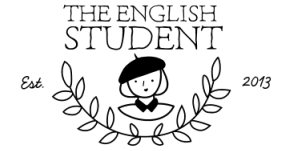What you should remember is that it's pronounced like the noun "interest" /ˈɪntrəst/, we place the stress on the first syllable -"in"- not on the "teres"
Listen and hear for yourself!
|
The adjective 'interesting' is one of the words that is very difficult to pronounce by non-native speakers. Most people like to say it with the stress on the second syllable (teres) rather than the first (in). What you should remember is that it's pronounced like the noun "interest" /ˈɪntrəst/, we place the stress on the first syllable -"in"- not on the "teres" To make it more interesting, many people actually pronounce the word like this: in-tres-ting. If you notice, the 'e' in the second syllable is not really emphasized.
Listen and hear for yourself!
0 Comments
Sometimes the best way to learn a language is through songs. But have you tried songs for children? It's much simpler and you can really learn a lot of everyday conversational phrases and improve your pronunciation. When you sing the song, you also remember phrases faster than memorization. Today practice and become familiar with asking "do you like" questions and its responses. Ask someone if they like broccoli ice cream! Numbers, numbers, numbers! Who can say it's not important. We use them in our lives daily, most of the time we don't even realize it. Think about going grocery shopping, taking measurements, following recipes, reading time, or calculating age. Because numbers are so important, it's crucial we know how to pronounce them correctly and be able to hear the differences between different numbers. One of the most commonly mispronunced are the teen and ten numbers. Many times a number like 18 could be heard as 80. These are sometimes hard to distinguish and even native speakers may ask for verification. Practice with these: Teen sounds like the word "mean" or "seen."
The "ty" in the number seventy when spoken in American English gives off a 'd' sound. Also, pay attention to where the stress is ( the part in red). The teen numbers are stressed in the "teen" and the ten numbers are stressed in the first number part. If you still need more practice, try listening to spoken numbers from the website below, remember what you learned from the guide above and practice, practice, practice! http://www.languageguide.org/english/numbers/%0A Have you ever heard that music helps with learning? Believe me, it works! Singing is not only fun, but you could learn so much (without even realizing you're learning!). I love to use music in my teaching because not only has there been a lot of scientific research into the benefits to language learning but I have seen the benefits with my own students. Take a look at some reasons why you should start singing! Do you think this Is too good to be true? Try and sing this song below! Can you share some English songs that have helped you learn the language? Pronunciation is not easy, even for native speakers! It might be hard for you to believe, but I've heard a lot of native English speakers make mistakes too. One example is the word 'debt', a lot of people pronounce it as 'deb-t' and not 'det'. It's such a common mistake. The 'b' does not need to be pronounced in this word, same as 'doubt' (no need to pronounce the 'b').
A lot of times, the way a word is spelled is not the way it's pronounced. So I decided to compile a list of some commonly mispronounced words especially for non-native speakers. Are there any other words you think should be included here? |
ARCHIVE
January 2017
CATEGORIES
All
 This work is licensed under a Creative Commons Attribution-NonCommercial-NoDerivatives 4.0 International License. |
THE SITE
|
SHOP
|
|
